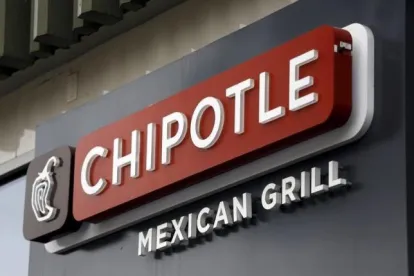The Court’s opinion in Scott v. Chipotle Mexican Grill demonstrates how employers can successfully combat class action claims that employees were misclassified as exempt. The successful defense of the class certification motion relied chiefly on deposition and declaration testimony to highlight inconsistencies, variations, and individualized inquiries that prevented resolution of the claims at issue on a class-wide basis.
Chipotle Mexican Grill, Inc. defeated certification of six separate classes involving allegations that the job position of “Apprentice” was misclassified as exempt for purposes of paying overtime wages. They also successfully moved to decertify a collective action under the Fair Labor Standards Act (“FLSA”) involving the same claims for 516 opt-in Apprentices nationwide. The case was brought by seven individuals who had worked as Apprentices in various Chipotle stores. The named plaintiffs worked in six states while the opt-in plaintiffs worked in 37 states. Chipotle considers the Apprentice position a salaried, management-level position and classified the position as exempt. The plaintiffs in the lawsuit claimed that they, and the other Apprentices employed in their respective states, perform insufficient managerial work and that, as a result, all of these Apprentices were misclassified as exempt entitling them to overtime wages.
In order to successfully certify the six state-law classes of Apprentices, the plaintiffs were required to demonstrate that questions of law or fact were common to the Apprentices who they sought to represent and that a class action was the superior method to adjudicate their claims. Through plaintiffs’ own deposition testimony, deposition testimony from numerous other Apprentices, and declaration testimony, Chipotle demonstrated to the Court that individualized inquiries as to each Apprentice’s authority and job duties were necessary to determine if the exempt classification was appropriate. Thus, there was no common proof and class adjudication was inappropriate.
During the various plaintiff depositions, Plaintiff Apprentices we shown to be taking conflicting positions. For instance, one plaintiff testified that he did not have any say in hiring employees, developing employees or setting work schedules. However, that very same plaintiff then admitted that he did engage in hiring, evaluating employee performance and scheduling. Another plaintiff testified that she spent the majority of her time on the floor making food. However, that same plaintiff testified that she was “running a good store” as an Apprentice, was involved in marketing, made hiring recommendations, drafted schedules and assisted with her store’s budget. Similar conflicts surfaced in the testimony of other plaintiffs as well as many of the opt-in plaintiffs that showed they were not similarly situated. These inconsistent accounts by the plaintiff and opt-ins demonstrated that Apprentices performed their duties in dissimilar ways and had varied authority that required individual, rather than collective analysis.
The Court also noted that differences in the structure of Chipotle locations, sales volume and managerial style also affected the amount of time Apprentices spent engaged in exempt managerial and administrative duties. Some locations have a General Manager or other management-level employee who is responsible for one or more stores that impacts the level of decision-making of an Apprentice at the same location. Yet, other locations have no such positions and are managed solely by Apprentices. Moreover, locations with higher sales volumes tend to have larger staffs. Apprentices at those locations engaged in more managerial activities such as hiring, discipline, training and supervision than Apprentices at stores with lower sales volumes. Because this too factors into whether and to what extent any individual Apprentice was engaged in exempt job duties, the Court concluded that proof of the Apprentices’ claims would not overlap and, thus, does not meet the class certification standard regarding common questions of law or fact.
As for the FLSA collective action, 516 Apprentices opted-in to join with the plaintiffs in their claims. In order to determine whether such a collective action could be maintained, the Court had to decide whether those Apprentices who opted-in were similarly situated to the plaintiffs. This included a consideration of disparate factual and employment settings of individual plaintiffs, Chipotle’s defenses, and procedural fairness. With respect to the disparate employment settings, the Court once again acknowledged the different levels and amount of authority each Apprentice might have in exercising tasks. The Court also observed that such disparities in job duties would permeate the job position because the 516 opt-ins came from 37 states and covered nine geographic regions. Such disparities were highlighted, in part, by the deposition testimony of an Apprentice who worked in two different states and testified to vastly different experiences engaging in management-level duties in those states.
Chipotle also asserted affirmative defenses arguing that some Apprentices were exempt under the “executive” exemption and others were exempt under a combination of the “executive” exemption and “administrative” exemption. Because of the inconsistencies in the testimony of plaintiffs as well as the testimony from the opt-in plaintiffs, the Court determined that it would be difficult for Chipotle to rely on “representative proof” in asserting these defenses. The Court opined that, to find otherwise would reduce the similarly situated requirement “to a mere requirement that plaintiffs share an employer, a job title, and a professed entitlement to additional wages.” Because such a standard falls far below what is required, the Court determined that the FLSA collective action that was conditionally certified in 2013 could not be maintained and granted Chipotle’s motion to decertify the collective action.
It is apparent from the Court’s opinion that the testimony presented was given significant weight in making its determination. Thus, employers who are able to highlight variations in job duties that are determinative of exempt status and articulate the necessity for individualized inquiries in misclassification cases should have a better chance of persuading a judge that class and collective certification is not appropriate.






 />i
/>i

